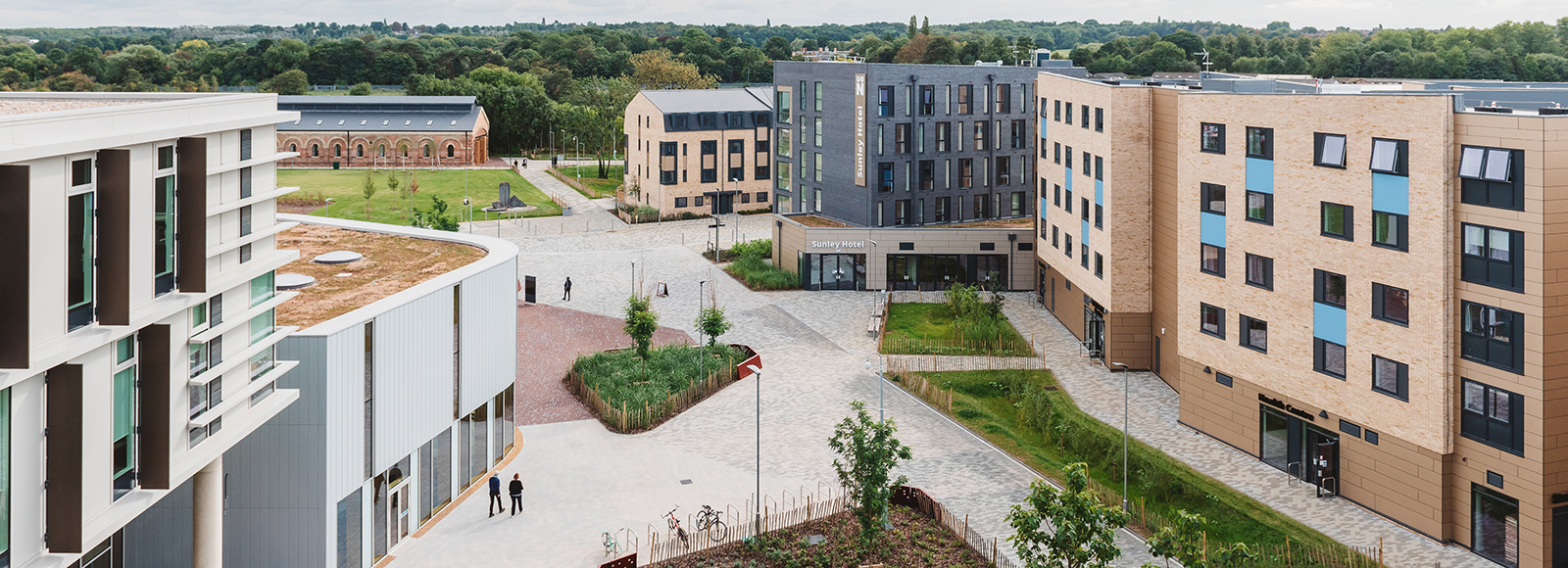- ...
Postgraduate Studentships - Search for funding opportunities.
Postgraduate Studentships - Search for funding opportunities.
The University of Northampton’s MA Social Work degree offers a dynamic two-year course which equips students with the requisite skills, knowledge and capabilities to graduate as a professional Social Work practitioner ready to make a difference within the contemporary social care arena.
Social Work continues to be a key professional role within UK society, seeking to promote social justice, address inequality and facilitate self-determination in those individuals and families requiring formal support.
Highlights
Please note: candidates must meet ALL of the following criteria to be considered for the social work master’s degree:
Students yet to graduate should ideally provide an academic reference (although a professional reference would be acceptable).
Students who have already graduated should provide a professional reference.
All offers of a place on our masters in social work are subject to:
Please note, entry requirements must be maintained as the programme is endorsed by Social Work England.
For fees and funding options please visit website to find out more
Employment prospects for graduates with a masters in social work are excellent and you will be able to pursue various social work careers across the country. Successful graduates will need to apply to Social Work England for registration. As Social Worker is a protected title, you need to have this registration before you can practice as a social worker. Only those graduating from a social work course can apply for this.
If you leave the course before completion, you may be able to be awarded an intermediate award, but you will not be able to register as a social worker.
Clearly this masters in social work is designed specifically to prepare and train for the Social Work profession and it can be utilised to develop onward skills in specific/specialist roles that link to the core Social Work qualification.
The MA Social Work degree programme aims to prepare students for professional practice through a 2-year Master’s course that blends key academic modules and rigorous placement experiences which focus on required professional standards appropriate to the delivery of assessment and support for those in need within our communities.
The Social Work MA course has been designed to contribute towards achieving the following United Nations Sustainable Development Goal: SDG3 of Good Health and Wellbeing.
Our MA Social Work programme is a challenging but ultimately rewarding route to professional qualification within a dynamic and multi-faceted career. The Social Work masters program itself is aligned with the education and professional standards of the current professional regulator – Social Work England. Additionally the academic and practice-focused material links with the British Association of Social Workers and Professional Capabilities Framework which starts at entry to the programme and follows professional development through to qualification.
Studying for a Social Work MA degree offers opportunities to develop academic and professional skills, such as: analytical report writing; assessing and managing risk; developing an understanding of the application of legislation in practice; evidence-based and theory linked practice plus direct work with families, children and other professionals. A key focus within the programme is the skills development linked to practice placement experiences which enable students to further, test, analyse and develop their Social Work skills with a range of organisations and individuals.
We have a broad range of placement providers which enables us to match students to suitable placements in the arenas of children in need, adults with mental health needs, youth offending, child protection and adult safeguarding, domestic abuse and education. All placements are quality assured by our dedicated placement team and full support is offered to all students whilst on placement via on-site or long-arm Practice Educators.

Welcome to the University of Northampton The University of Northampton celebrates the path less trodden. The different thinkers. The different doers. ...
Sign up to Postgraduate Studentships
Sign up to compare masters
Thanks for making your selection. Click below to view your comparisons.